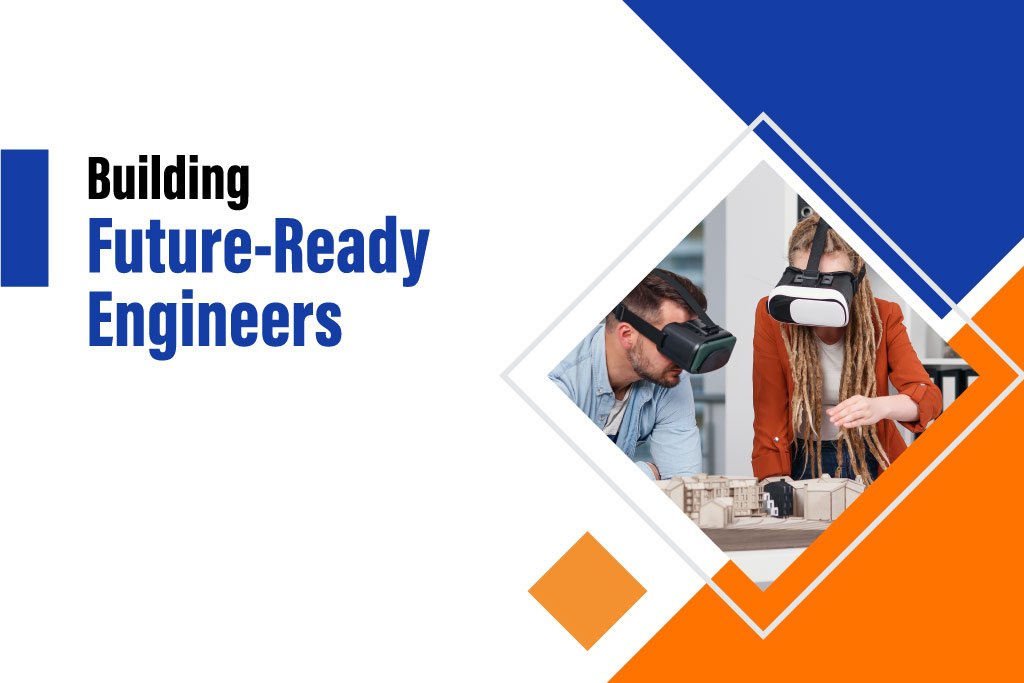
Engineering higher education has a significant influence on advancements in technologies and industries. Coimbatore is one of the best cities for BTech education due to the number of top-notch educational institutions. It enjoys a reputation as an education hub with the best BTech Artificial Intelligence and Data Science Colleges and is at the forefront of embracing cutting-edge trends to provide the best education for young talents and ensure they are future-ready.
Why should there be changes to the engineering higher education curriculum?
Engineering education should adapt to the changing requirements of the present workplace environments. Companies look for both technical and non-technical skills like creativity, people handling skills and analytical skills.
Technological advancements are happening fast and modern workplace challenges need inputs from multiple disciplines to tackle them. Globalisation, changing industry needs and ethical and societal considerations are some of the reasons why there should be changes to the engineering curriculum.
Context-based learning, teamwork and creativity are certain elements that can help the present generation respond quickly and effectively to meet the complex challenges of the modern workplace.
Higher education providers the world over are looking for innovative approaches. In this blog let’s look at some of the approaches that colleges and universities can integrate into their curriculum:
Context-based learning: This is a student-centric approach wherein the student solves a problem by working in a team, thereby improving his knowledge. The challenge of solving the problem motivates students to learn subjects.Some universities use this approach and it can be integrated into any course module with relevant challenges. This involves designing module-specific assignments addressing real-world challenges that enable students to meet learning outcomes.
Working as a team: Engineers are required to work with people belonging to different backgrounds and cultures while working on a project or at the workplace. So, colleges should include skill development programs in the curriculum to address team-working needs. Context or problem-based learning should be about solving challenging engineering problems in teams. Students should be taught how to effectively contribute while working in teams, by increasing the degree of teamwork. To become effective team players engineering students should be trained on the key elements needed to work in teams effectively. They include developing communication skills and attentive listening skills while learning to consider and respect diverse opinions. Actively promoting diversity and inclusion among students and teaching faculty can help them value different perspectives and foster an engaging learning environment.
Widening access to engineering education: It’s not always correct that engineering students should have high mathematical competence. Engineering problems require a combination of skills to find relevant solutions, so the degree of competence required depends on the problem to be solved. The field of engineering needs individuals with creativity and out-of-the-box thinking besides mathematics. Most employers from small and medium-sized businesses look for non-technical skills like a proactive mindset and inquisitive nature.
Integrating ethical, sustainability and social inclusion principles in the course curriculum: The need for ethical thinking increases with technological developments. This further emphasizes the need to include ethical and socially inclusive topics in the curriculum. Engineering professionals need a mix of technical and non-technical skills to ensure successful project completion. It’s essential to understand the social repercussions resulting from their work. A holistic understanding which includes sustainability, ethics, social inclusion and a multidisciplinary approach, is required to tackle the global challenges of today. Its also essential to train young students to think critically from different perspectives.
Lifelong learning: Encouraging a culture of lifelong learning in students prepares them for a future marked by quick technological improvements. The aim of engineering higher education streams should be to promote lifelong learning and empower students with the skills and learnings for personal and professional development to sustain success in the real world.
The best BTech Artificial Intelligence colleges in Coimbatore understand that the path to creative innovation and technological growth lies in engineering education. They embrace cutting-edge trends and approaches to transform engineering education and empower students to thrive in fast-paced environments.
Increasing industry partnerships will help colleges mould the next generation of engineers which can positively influence society and technology.
By incorporating the above vital elements, colleges and universities can transform engineering education and produce individuals who use systems thinking to deal with the global challenges of the modern world.
